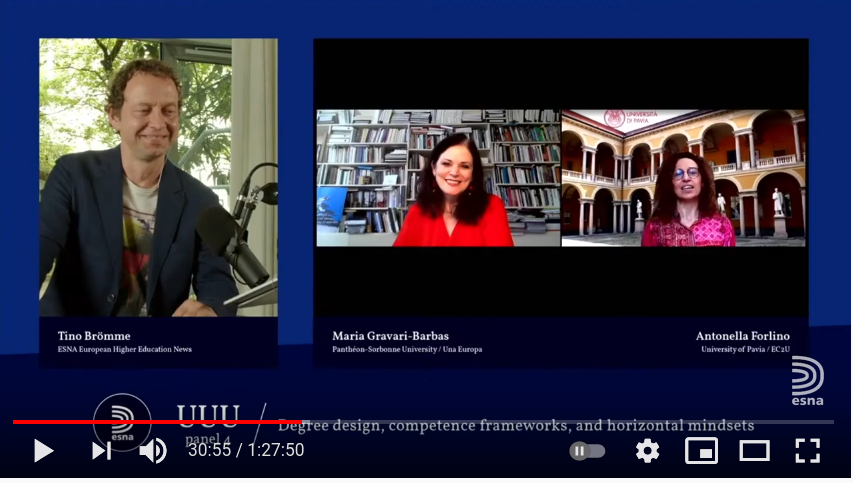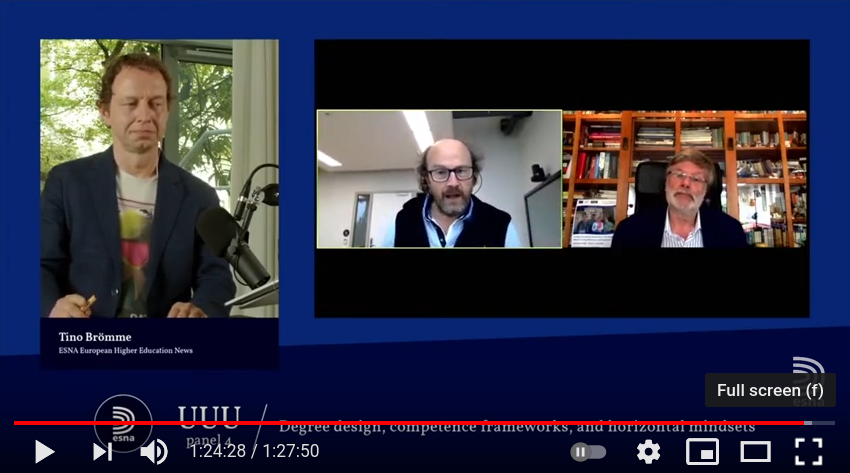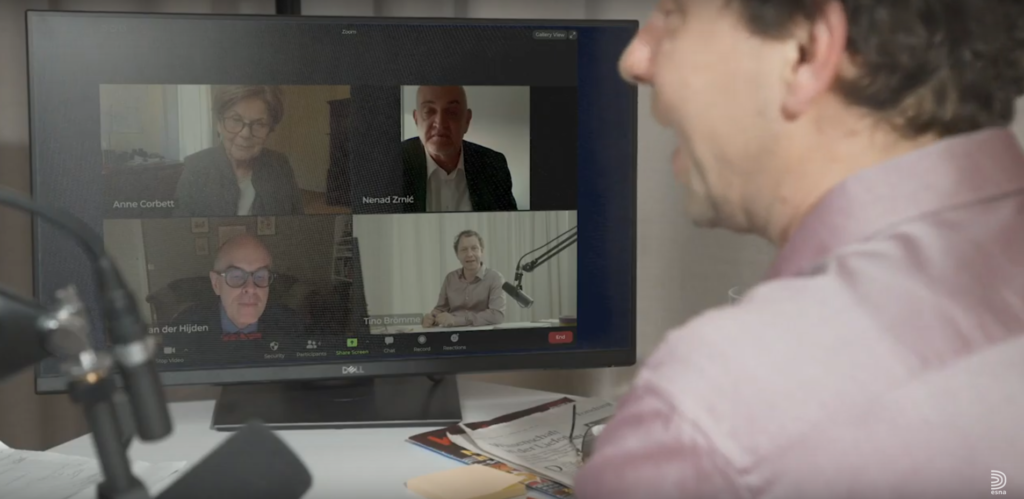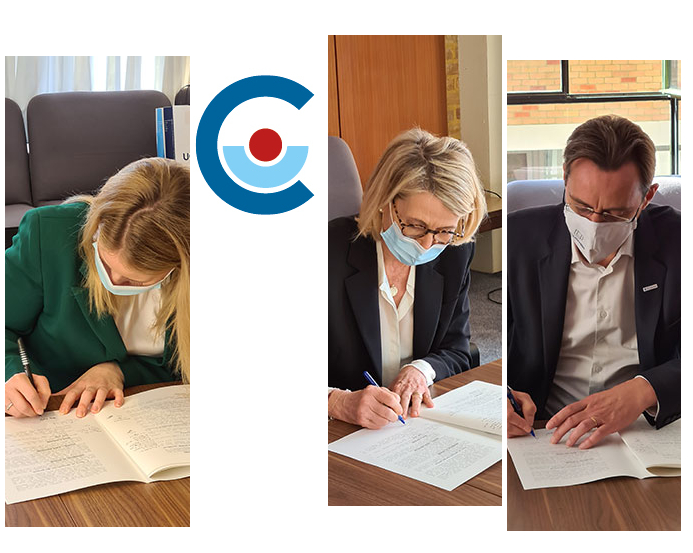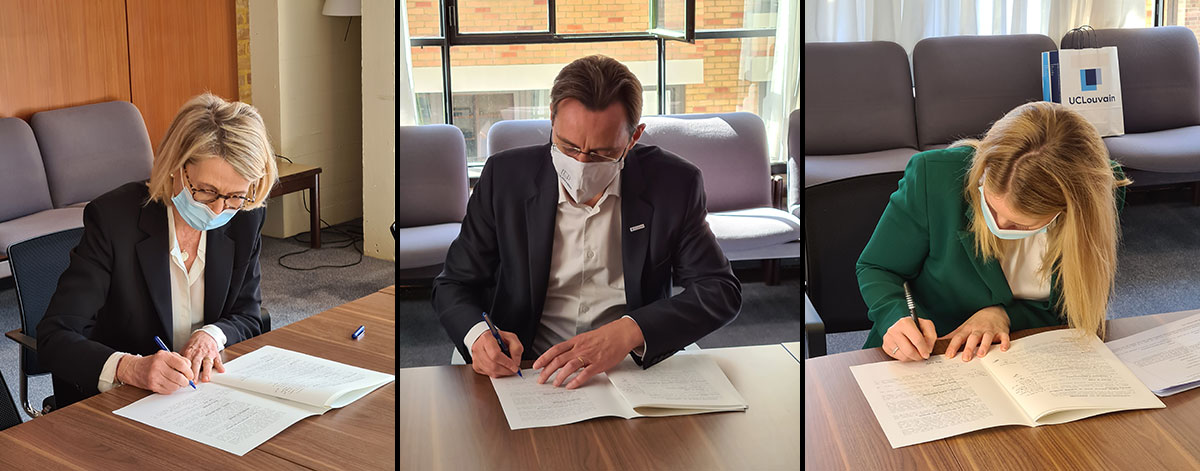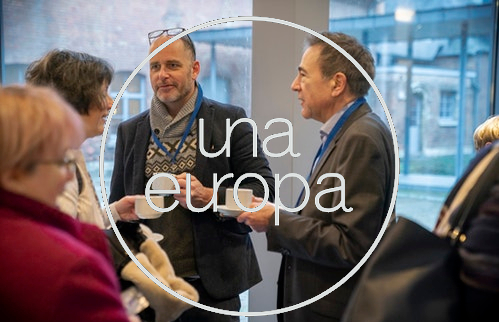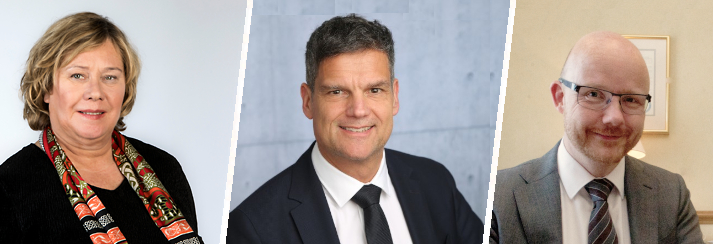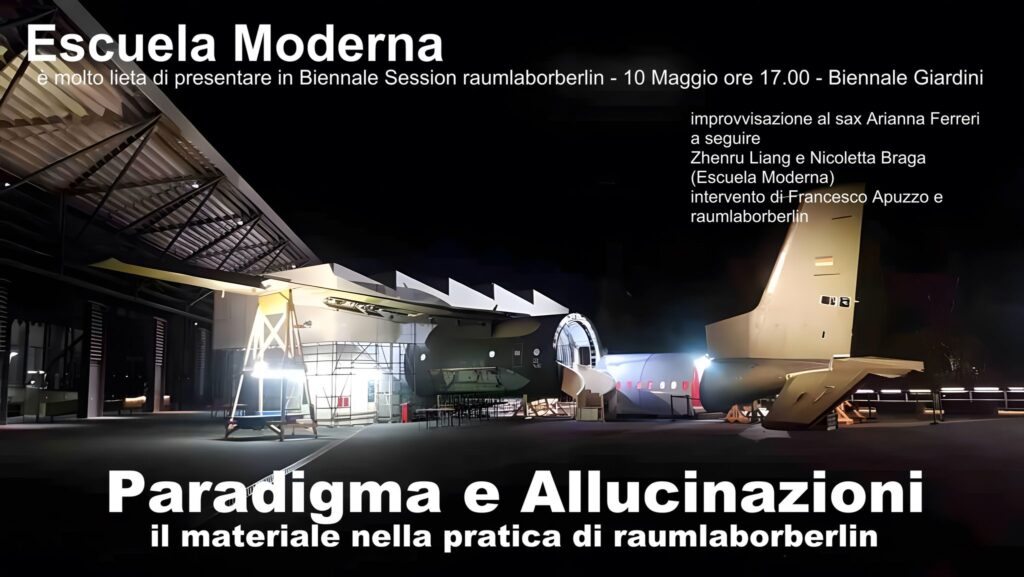
Biennale Sessions 2025, Escuela Moderna
10. Mai um 17:00 Uhr, Russischer Pavillon
Die Escuela Moderna freut sich, am 10. Mai um 17:00 Uhr in den Giardini der Biennale in Venedig zu präsentieren. Treffpunkt um 16:30 Uhr am Eingang der Giardini: Paradigm and Hallucinations, Educational Space at the Biennale Sessions Gardens
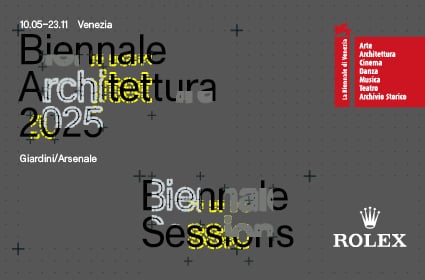
Material in der Praxis von Raumlaborberlin. Es präsentieren, in folgender Reihenfolge: Arianna Ferreri (Saxophon-Klangperformance), Kateryna Kovalchuk (poetische Straßenperformance vor dem Pavillon), Nicoletta Braga und Zhenru Liang (Escuela Moderna), gefolgt von Francesco Apuzzo von Raumlaborberlin.
“Mit einem Wandel in der Erzählweise entscheiden wir uns dafür, mit Materialien zu bauen, die zuvor in anderen Kontexten verwendet wurden – Fragmente mit eigener Erinnerung, Objekte und Systeme, die für eine begrenzte Zeit eine abgewandelte, dekontextualisierte Rolle übernehmen.
Diese radikale Entscheidung, die wir mit Experten aus verschiedenen Disziplinen teilen, nimmt die Form eines Paradigmas an: eine Haltung, eine bedeutungsvolle Geste. Materie, Raum und der unsichtbare Körper technischer, administrativer und wirtschaftlicher Parameter sind miteinander verwoben. Wie in einem Gewebe, das von Fehlern oder Überlagerungen geprägt ist, treten Halluzinationen zutage.
Im kreativen und konstruktiven Prozess bleibt die feine Grenze zwischen dem Zulassen dieser Halluzinationen und ihrer Kontrolle ein zentrales Thema – und bildet oft den Kern unserer Arbeit.
Die Zusammenarbeit mit Francesco besteht schon lange; wir hatten das Vergnügen, gemeinsam an Formen der Unruhe im BASE Mailand zu arbeiten, und seither pflegen wir ein freundschaftliches Verhältnis.
Später präsentierte Nicoletta Braga die Ergebnisse dieser Zusammenarbeit an verschiedenen Universitäten in Spanien, etwa in Granada und Sevilla, und stellte dann im spanischen Pavillon aus – im selben Jahr, in dem Raumlaborberlin den Goldenen Löwen auf der Architekturbiennale gewann.
In diesem Jahr ein Treffen mit Studierenden in Brera im Kurs von Zhenru Liang, in Zusammenarbeit mit Guerri, Scudero, Braga, Moioli – und schließlich diese Veranstaltung bei den Biennale Sessions 2025 im russischen Pavillon, um ihre Praxis zu diskutieren, aber auch Internationalismus, Kunst, Architektur, Poesie und Frieden – wie immer in unserem Stil.
Unter anderem haben wir mit dem Gewinner des Goldenen Löwen Saburo Teshigawara an libertären Einflüssen in den Künsten gearbeitet; mit Vicente Todolí und David Liver an Museumsprojekten; mit Francesco Proto von Oxford Konferenzen über Jean Baudrillard organisiert; mit Antonio Manuel und Camillo Osorio vom brasilianischen Pavillon kooperiert; mit unseren Genoss:innen von Sale Docks zusammengearbeitet; sowie mit der italienischen Beatgeneration in Arbeitskleidung mit Sardella, Brolati, Brugnaro senior, Rino de Michele, Elena Roccaro und – nicht zu vergessen – Parco Aperto Mestre mit ApArte, dem historischen libertären Kulturmagazin Venedigs, oder öffentliche Kunst am Flughafen Marco Polo in Tessera, Venedig.
Wir haben stets versucht, zeitgenössische Themen mit größter Sanftheit zu behandeln.”
Massimo Mazzone, Sprecher der Escuela Moderna



